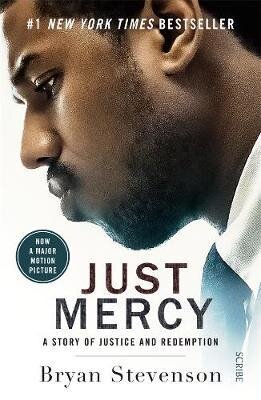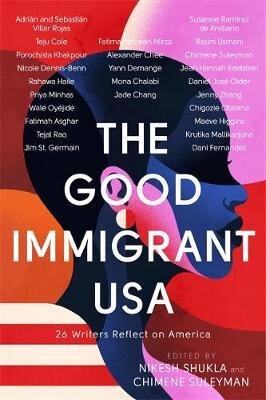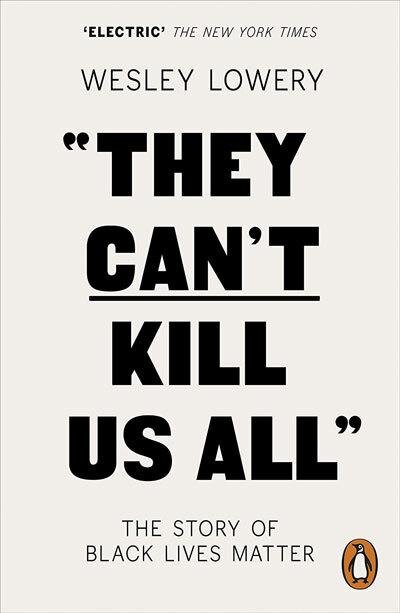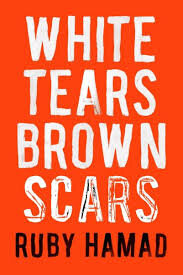Books to help you understand & fight white supremacy
This last week has been a tipping point for highlighting, once again, the extent of policy brutality against black and people of colour in the USA. The uprising and demonstrations across many states in the US, alongside similar demonstrations in other countries, including Australia, shows that there are many people in the world who are watching.
It is important to also pay attention to what deaths in incarceration and racial profiling by the police can look like in Australia for Aboriginal and Torres Strait Islander people. Indigenous people make up 29% of the entire incarcerated population in Australia, despite representing 3% of the general Australian population. Since a Royal Commission into Aboriginal Deaths in Custody was completed in 1991, there have been 432 Indigenous deaths in custody, with no convictions for officers who have been involved in those deaths.
Reading and learning about racism, anti-racism, and white supremacy is a practical and timely exercise for white people (including myself) who are wanting to learn more about identifying the systems which allow inequality and violence to both start and continue unchecked. Readings bookstore have curated a list of suggested books - it is shared in this post with their permission. The original post can be found here.
Biased
Jennifer Eberhardt
In Biased Jennifer Eberhardt draws on groundbreaking research to demonstrate that even without explicit racism, our unconscious biases powerfully shape our behaviour leading to racial disparities in all sectors of society.
This celebration of Black resistance, from protests to art to sermons to joy, offers a blueprint for the fight for freedom and justice - and ideas for how each of us can contribute.
How We Fight White Supremacy
Akiba Solomon, Kenrya Rankin
This celebration of Black resistance, from protests to art to sermons to joy, offers a blueprint for the fight for freedom and justice-and ideas for how each of us can contribute.
Why I’m No Longer Talking to White People About Race
Reni Eddo-Lodge
The book that sparked a national conversation.
Exploring everything from eradicated black history to the inextricable link between class and race, Why I’m No Longer Talking to White People About Race is the essential handbook for anyone who wants to understand race relations in Britain today.
Talkin' Up to the White Woman
Aileen Moreton-Robinson
Australian text.
Talkin' Up To The White Woman: Indigenous Women And Feminism is an accessible and provocative analysis of the whiteness of Australian feminism. A pioneering work, like Greer’s The Female Eunuch, it will overturn complacent notions of a mutual sisterhood and the common good.
A uniquely Australian contribution to the increasing global discourse on feminism and race.
We Were Eight Years in Power
Ta-Nehisi Coates
In this essential book, Ta-Nehisi Coates takes stock of Obama’s eight years in power, brilliantly navigating the intersections of political, ideological and cultural perspectives. And he reflects on his own journey through these years, weaving the public with the private to create a startlingly intimate and piercingly relevant memoir.
Natives: Race and Class in the Ruins of Empire
Akala
Covering everything from the police, education and identity to politics, sexual objectification and the far right, Natives will speak directly to British denial and squeamishness when it comes to confronting issues of race and class that are at the heart of the legacy of Britain’s racialised empire.
The Hate Race
Maxine Beneba Clarke
Australian text.
From one of Australia’s most exciting writers, and the author of the multi-award-winning Foreign Soil, comes The Hate Race: a powerful, funny, and at times devastating memoir about growing up black in white middle-class Australia.
Just Mercy
Bryan Stevenson
Just Mercy is at once an unforgettable account of an idealistic, gifted young lawyer’s coming of age, a moving window into the lives of those he has defended, and an inspiring argument for compassion in the pursuit of true justice.
Growing Up Aboriginal in Australia
Anita Heiss
Australian text.
What is it like to grow up Aboriginal in Australia? This anthology, compiled by award-winning author Anita Heiss, attempts to showcase as many diverse voices, experiences and stories as possible in order to answer that question. Each account reveals, to some degree, the impacts of invasion and colonisation - on language, on country, on ways of life, and on how people are treated daily in the community, the education system, the workplace and friendship groups.
Talking To My Country
Stan Grant
Australian text.
Talking to My Country is that rare and special book that talks to every Australian about their country - what it is, and what it could be. It is not just about race, or about indigenous people but all of us, our shared identity. Direct, honest and forthright, Stan is talking to us all. He might not have all the answers but he wants us to keep on asking the question: how can we be better?
Between The World And Me
Ta-Nehisi Coates
In the 150 years since the end of the Civil War and the ratification of the Thirteenth Amendment, the story of race and America has remained a brutally simple one, written on flesh: it is the story of the black body, exploited to create the country’s foundational wealth, violently segregated to unite a nation after a civil war, and, today, still disproportionately threatened, locked up and killed in the streets. What is it like to inhabit a black body and find a way to live within it? And how can America reckon with its fraught racial history?
Race: Vintage Minis
Toni Morrison
An exploration of race from one of the twentieth century’s primary chroniclers of the African American experience.
Is who we are really only skin deep? In this searing, remonstrative book, Toni Morrison unravels race through the stories of those debased and dehumanised because of it.
The Good Immigrant USA
Nikesh Shukla, Chimene Suleyman
An urgent collection of essays by first and second-generation immigrants, exploring what it’s like to be othered in an increasingly divided America.
From Trump’s proposed border wall and travel ban to the marching of White Supremacists in Charlottesville, America is consumed by tensions over immigration and the question of which bodies are welcome. In this much-anticipated follow-up to the bestselling UK edition, hailed by Zadie Smith as ‘lively and vital’, editors Nikesh Shukla and Chimene Suleyman hand the microphone to an incredible range of writers whose humanity and right to be here is under attack.
Notes of a Native Son
James Baldwin
Written during the 1940s and early 1950s, when Baldwin was only in his twenties, the essays collected in Notes of a Native Son capture a view of black life and black thought at the dawn of the civil rights movement. Writing as an artist, activist, and social critic, Baldwin probes the complex condition of being black in America - from life in Harlem, to the protest novel, movies, and the experience of African Americans abroad - and many of his observations have proven almost prophetic.
They Can’t Kill Us All: The Story of Black Lives Matter
Wesley Lowery
A deeply reported book on the birth of the Black Lives Matter movement, offering unparalleled insight into the reality of police violence in America, and an intimate, moving portrait of those working to end it In over a year of on-the-ground reportage, Washington Post writer Wesley Lowery traveled across the US to uncover life inside the most heavily policed, if otherwise neglected, corners of America today.
So You Want to Talk About Race
Ijeoma Oluo
In So You Want to Talk About Race, editor-at-large of The Establishment Ijeoma Oluo offers a contemporary, accessible take on the racial landscape in America, addressing head-on such issues as privilege, police brutality, intersectionality, micro-aggressions, the Black Lives Matter movement, and the N word. Perfectly positioned to bridge the gap between people of color and white Americans struggling with race complexities, Oluo answers the questions readers don’t dare ask, and explains the concepts that continue to elude everyday Americans.
The New Jim Crow
Michelle Alexander
Challenging the notion that the election of Barack Obama signalled a new era of colourblindness in the United States, The New Jim Crow reveals how racial discrimination was not ended but merely redesigned. By targeting black men through the War on Drugs and decimating communities of colour, the American criminal justice system functions as a contemporary system of racial control, relegating millions to a permanent second-class status even as it formally adheres to the principle of colourblindness.
A searing call to action for everyone concerned with social justice, The New Jim Crow is one of the most important books about race in the 21st century.
Because a White Man’ll Never Do It
Kevin Gilbert.
Australian text.
First published in 1973, Gilbert’s controversial account of Aboriginal affairs paints a disturbing image of the impact of the colonisation of Australia and the ongoing problems faced by the Aboriginal people. The book poses a solution directly addressing what Indigenous people really want: land, compensation, discreet non-dictatorial help and, most of all, to be left alone by white Australia.
I Am Your Sister
Audre Lorde
I Am Your Sister is a collection of Lorde’s non-fiction prose, written between 1976 and 1990, and it introduces new perspectives on the depth and range of Lorde’s intellectual interests and her commitments to progressive social change. Presented here, for the first time in print, is a major body of Lorde’s speeches and essays, along with the complete text of A Burst of Light and Lorde’s landmark prose works Sister Outsider and The Cancer Journals.
White Tears, Brown Scars
Ruby Hamad
Australian text.
When white people cry foul it is often people of colour who suffer. White tears have a potency that silences racial minorities.
White Tears/Brown Scars blows open the inconvenient truth that when it comes to race, white entitlement is too often masked by victimhood. Never is this more obvious than the dealings between women of colour and white women. What happens when racism and sexism collide?
Ruby Hamad provides some confronting answers.
Me and White Supremacy
Layla F Saad
Between June and July 2018, Layla Saad ran a 28-day Instagram challenge under the hashtag #MeAndWhiteSupremacy, for people with white privilege to unflinchingly examine the ways that they are complicit in upholding the oppressive system of white supremacy.
The challenge quickly went viral, with thousands of people from all over the world (including USA, Canada, UK, Italy, Germany, The Netherlands, Russia, UK, Australia, New Zealand, Thailand and Qatar, among others) diving deep for 28 consecutive days to examine and take responsibility for the ways in which they uphold white supremacy. The challenge catalyzed a worldwide awakening for thousands of white-privileged people to begin to take ownership of their personal anti-racism work.
How to Be an Antiracist
Ibram X. Kendi
In this rousing and deeply empathetic book, Ibram X. Kendi, founding director of the Antiracism Research and Policy Center, shows that when it comes to racism, neutrality is not an option: until we become part of the solution, we can only be part of the problem.
Using his extraordinary gifts as a teacher and story-teller, Kendi helps us recognise that everyone is, at times, complicit in racism whether they realise it or not, and by describing with moving humility his own journey from racism to antiracism, he shows us how instead to be a force for good. Along the way, Kendi punctures all the myths and taboos that so often cloud our understanding, from arguments about what race is and whether racial differences exist to the complications that arise when race intersects with ethnicity, class, gender and sexuality.
In the process he demolishes the myth of the post-racial society and builds from the ground up a vital new understanding of racism - what it is, where it is hidden, how to identify it and what to do about it.
White Fragility: Why It’s So Hard for White People to Talk About Racism
Robin DiAngelo
Robin DiAngelo coined the term ‘White Fragility’ in 2011 to describe this process and is here to show us how it serves to uphold the system of white supremacy. Using knowledge and insight gained over decades of running racial awareness workshops and working on this idea as a Professor of Whiteness Studies, she shows us how we can start having more honest conversations, listen to each other better and react to feedback with grace and humility. It is not enough to simply hold abstract progressive views and condemn the obvious racists on social media - change starts with us all at a practical, granular level, and it is time for all white people to take responsibility for relinquishing their own racial supremacy.
White Rage: The Unspoken Truth of Our Racial Divide
Carol Anderson
From the Civil War to our combustible present, acclaimed historian Carol Anderson reframes our continuing conversation about race, chronicling the powerful forces opposed to black progress in America. As Ferguson, Missouri, erupted in August 2014, and media commentators across the ideological spectrum referred to the angry response of African Americans as black rage, historian Carol Anderson wrote a remarkable op-ed in The Washington Post suggesting that this was, instead, white rage at work. With so much attention on the flames, she argued, everyone had ignored the kindling.
The Fire This Time: A New Generation Speaks About Race
Jesmyn Ward
In this bestselling collection of essays and poems, Jesmyn Ward gathers a new generation of writers and thinkers to speak on race. From Claudia Rankine to Rachel Kaadzi Ghansah, Kiese Laymon to Carol Anderson, these voices shine a light on the darkest corners of American history, wrestle with the struggles the country faces today and imagine a better future.
Envisioned as a response to The Fire Next Time, James Baldwin’s groundbreaking 1963 essay collection, The Fire This Time considers the black experience in modern America.

























